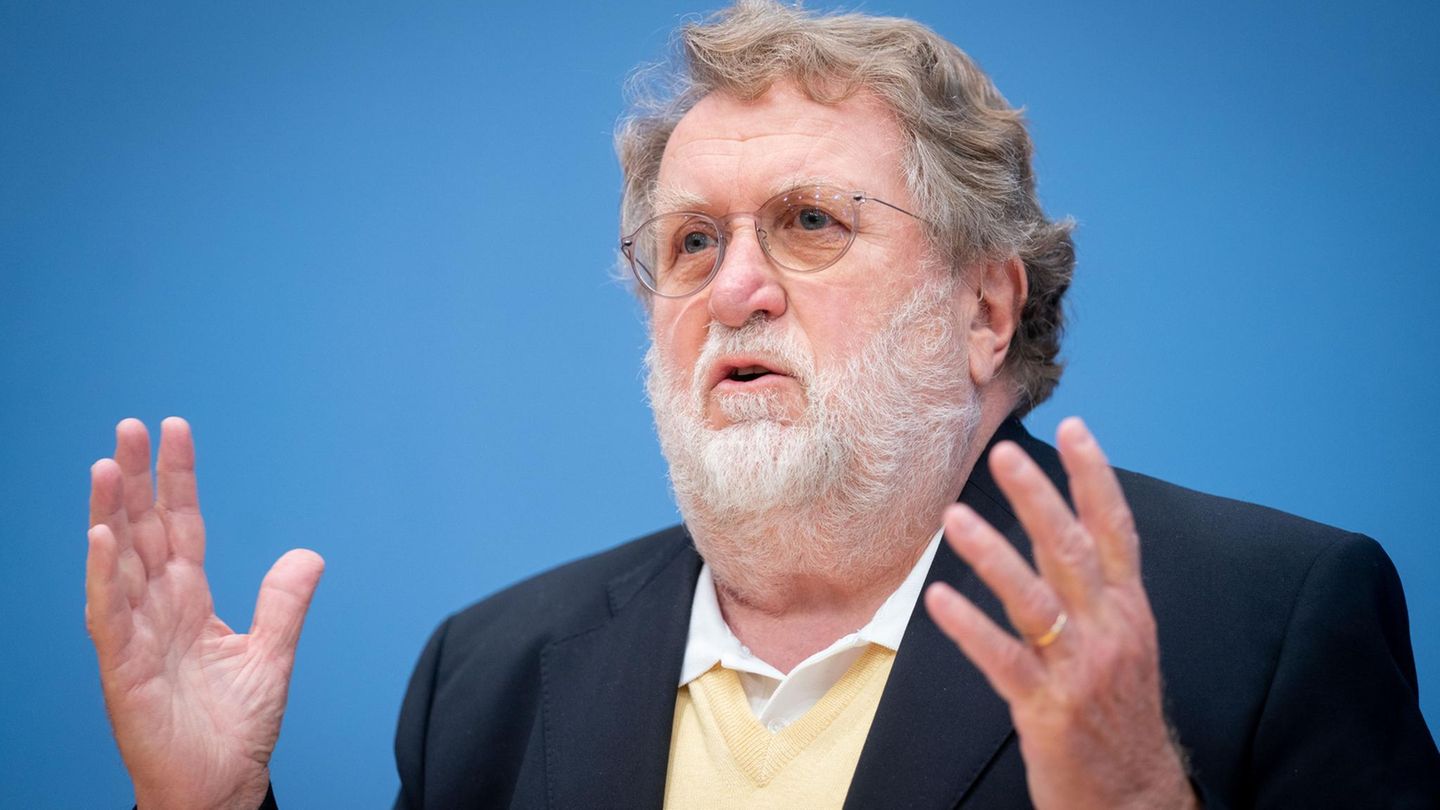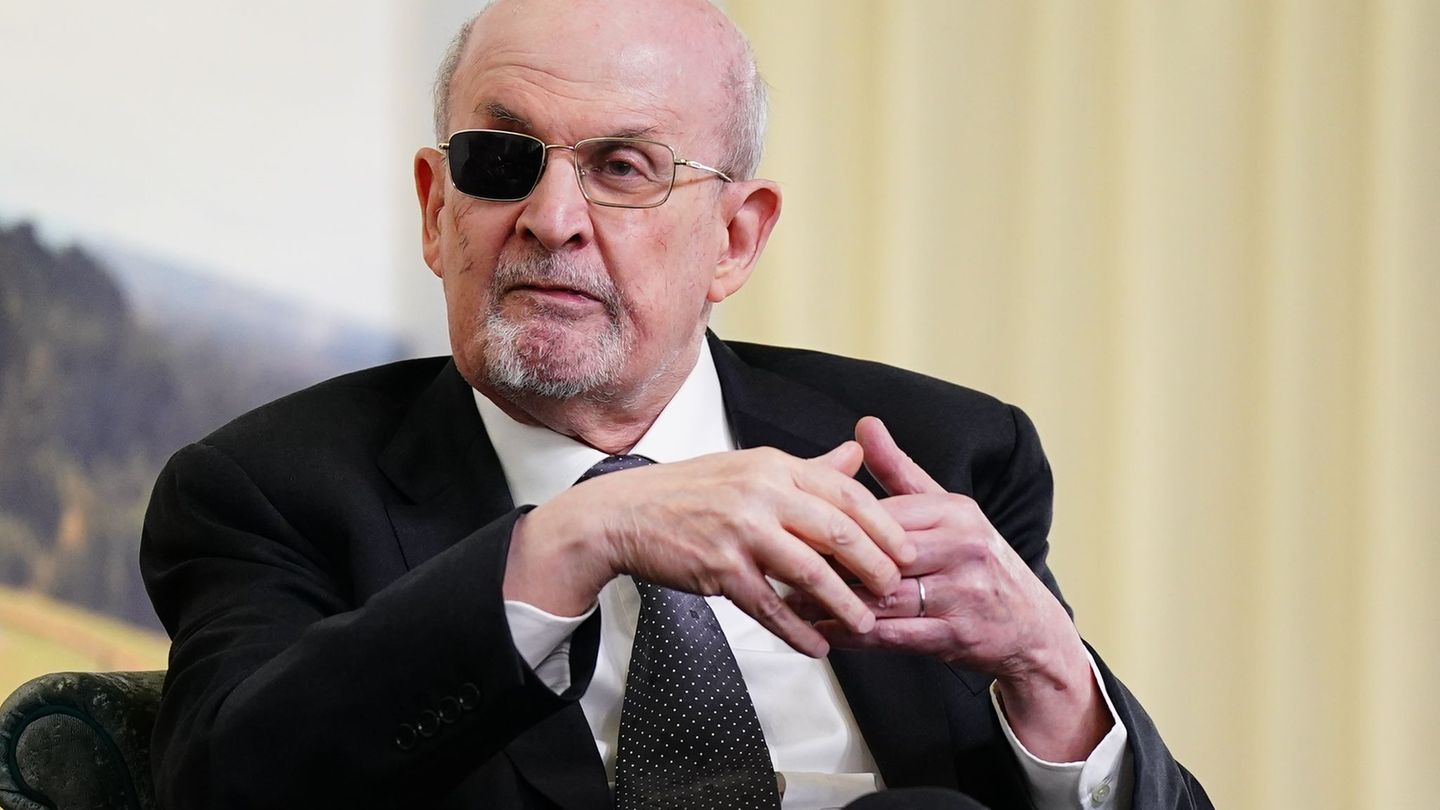The virus variant Omikron is circulating, the federal and state governments are restricting contacts for unvaccinated people and Stiko boss Thomas Mertens is causing uncertainty among parents. That was the Corona week in retrospect.
Bund-Länder meetings in a double pack
Originally, there was not supposed to be a meeting between the federal government and the states until December 9th, but the continued high number of infections forced those responsible to act during the week. On Tuesday and Thursday, representatives from the federal and state governments met and decided to tighten the corona rules. 2G in retail, restriction of the number of spectators at sporting and large events, clubs and discos must close from an incidence of over 350. In addition, tightening of contacts for unvaccinated people who are only allowed to meet with members of their own household and two other people from another household.
In this way, the federal and state governments present uniform regulations, which not all states adhere to. For example, Saxony, which was once again badly affected, and Saarland have passed resolutions that go beyond the unification of the federal and state governments. Clubs and discos have been closed for a few days, and people who have not been vaccinated are only allowed to meet one other person. In Saxony, restaurants and retail stores are only allowed to open between 6 a.m. and 8 p.m. New and at the same time known from the previous year is the ban on fireworks on New Year’s Eve and New Year’s Day. “Corona comes first, but we don’t think the decision is correct,” said Jens Thomas from the Bremerhaven fireworks producer Comet, criticizing the decision stern (Read more about it here).
Debate about compulsory vaccination
In Austria it has been certain for two weeks that there will be a general compulsory vaccination from February. And Germany could follow suit. Representatives from the federal and state governments decided on Thursday that the Bundestag should vote on the introduction as soon as possible, the start date could be as early as February. The mandatory vaccination already has prominent supporters: the designated Federal Chancellor Olaf Scholz spoke out in favor of mandatory vaccination, as did Bavaria’s Prime Minister Markus Söder. Even FDP leader Christian Lindner, from whose party there are many votes against compulsory vaccination, announced that he would vote for the introduction. “That’s why we keep getting into these situations like now, when freedoms for everyone have to be restricted,” said Lindner. He also referred to sufficient experience with the vaccines. “We have to open up to such a compulsory vaccination. It’s a sharp sword, but I think it’s proportionate.”
Omikron unsettles the world
It has been around a week and a half since South African researchers announced the discovery of the omicron variant. Since then there have been many opinions, but not very reliable certainties about the variant. It is possible that the variant has improved transferability, said virologist Christian Drosten. However, this has not yet been proven. Christian Drosten said last Sunday on ZDF: “Nobody can say at the moment what is in store for us”. Drosten assumes, however, that the available vaccines also protect against the new variant, in particular against severe disease. It is even better “when you are boosted.” Bavaria’s Prime Minister Markus Söder (CSU) made a similar statement on ZDF on Monday. “We have to boost, boost, boost,” he said, calling for nationwide contact restrictions.
When it comes to the question of whether Omikron is more dangerous than the Delta variant, the experts are still unsure. However, according to South African doctor Angelique Coetzee, there are signs that an omicron infection causes only mild symptoms. When examining around 30 patients in Pretoria, she found unusual but only mild symptoms, she told the AFP news agency. Most of those infected were men under 40 years of age. Above all, they suffered from “extreme fatigue”. Everyone has recovered without having to go to the hospital.
The SPD health expert Karl Lauterbach also considers a lighter course of the disease to be “conceivable”. He urged caution, however, since South Africa has a very young population, while Germany is the country with the oldest population in Europe with many chronically ill people.
The Stiko boss and his rhetoric
Without question, the Standing Vaccination Commission (Stiko) has not had a grateful job since the beginning of the pandemic. A country looks at the commission and its recommendations and is either angry because the recommendations come late (the anger is entirely justified) or it does not correspond to its own views (the anger is not quite so justified, dear vaccination skeptics). However, the chairman of Stiko, Thomas Mertens, delivered an unfortunate picture in the past few weeks. It wasn’t until mid-November that Mertens told Markus Lanz, almost casually, that there would soon be a booster recommendation for everyone over the age of 18. Not only did it come very late anyway, he made this recommendation public before the official recommendation from Stiko was made. It didn’t come until two days later. In politics, too, people are increasingly annoyed by the hesitant action of Stiko. “It is a shame that Stiko only recommended boosters for 70-year-olds in October and not until November for everyone. That came too late,” said Mecklenburg-Western Pomerania’s Prime Minister Manuela Schwesig in “Spiegel”.
However, Mertens acted almost irresponsibly this week when he declared in a podcast in the “Frankfurter Allgemeine Zeitung” that he would not have his seven to eight year old children vaccinated, who by the way he does not have. Without question, that is his opinion, which he can of course also express and nobody wants to deny him. Mertens certainly had nothing bad in mind when he made his statement, nor did he switch to the side of the conspirators. Mertens also explicitly emphasized that children with previous illnesses should be vaccinated. Much more, the Stiko chairman is a scientist through and through who relies on data. Mertens referred to the lack of data on the tolerance of the vaccine in children – so far, these have only been vaccinated in Israel and the USA. In addition, the evidence can only be transferred to Germany to a limited extent. There are at least the first data from the USA that may give laypeople hope. So far around 4.7 million vaccine doses have been given to children, and according to the infectiologist Alexander Wong, no serious side effects such as myocarditis have yet been reported.
Back to Mertens, who, as chairman of the Stiko, which wants to publish its official statement on the vaccinations of five to eleven year olds in a few days, only causes a lot of uncertainty among the parents. If the Stiko gives a recommendation for the vaccination of the children, this statement by Thomas Mertens will always be floating around at the same time. Mertens has done the Stiko and the vaccination campaign a disservice with the rhetorical own goal. The Biontech children’s vaccine was approved by the European Medicines Agency (EMA) in mid-November. According to the outgoing Health Minister Jens Spahn, the first deliveries are to take place from December 13th. Hopefully the Stiko will have commented on the children by then.
Sources: dpa,
Source From: Stern




